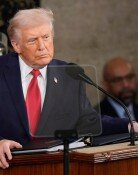Will the Real Ruling Party in Korea Stand Up?
Will the Real Ruling Party in Korea Stand Up?
Posted March. 03, 2009 03:35,
We dont seem to know why we were allowed to have a majority of 171 seats, said a two-time lawmaker from the ruling Grand National Party in frustration and anger yesterday.
The lawmaker made this comment right after National Assembly Speaker Kim Hyong-os attempt to deliberate a disputed media reform bill using his right as speaker was overturned. We prevented a political disaster, but we lost the calling of our time, the lawmaker said.
The ruling party begrudgingly accepted the main opposition Democratic Partys demand for creating a social framework for discussion in exchange for passing the bill.
Ruling party floor leader Hong Joon-pyo had told a supreme council meeting a week ago, Which countrys lawmakers delegate their responsibility of deliberating bills to a social framework?
The ruling party, however, accepted the offer after just a week.
The party blasted its opposition rivals sit-in at the National Assembly around the end of last year. This time, ruling party members occupied Rotender Hall in front of the main chamber at the National Assembly, claiming to be taking a preemptive measure to block the Democratic Partys violence. Given that the Grand National Party is the majority party, however, its argument is unconvincing.
The Grand National Party has neither political power nor principles, one of its own members said. Since the leadership has failed to persuade the opposition and rather is influenced by it, it has no choice but to go overboard.
The ruling party said the media bill will revive the economy and came up with specific figures: a generating effect of three trillion won (1.9 billion U.S. dollars) and the creation of 21,500 jobs.
The partys chief policymaker Yim Tae-hee explained why Speaker Kims mediation in the general assembly was accepted in early morning. Since the media bill is blocking the passage of other economy-related bills, we decided to pass it next time, he said.
This makes no sense, however.
A source from a ruling party policy-making committee said, What excuse should we come up with when we put the media bill to a vote next time?
The brouhaha resulted in no tangible benefits, however. The ruling party postponed passing a revised bill on Korea Development Bank, one of the bills intended to privatize the state-run bank, to pass the bill on the Policy Finance Corporation.
Had the ruling party dealt with the Korea Development Bank bill more carefully, the delay would not have happened.
A first-time lawmaker said, "How can we ask conglomerates to expand investment and employment?
What this shows is how the opposition party with a parliamentary minority can beat the ruling party. The Grand National Party held a standing committee meeting around Feb. 20, but the period for deliberating a bill was only a week.
Ruling party lawmakers tried to occupy the hall in front of the main chamber of the National Assembly Sunday afternoon. But only 106 out of 171 members joined the sit-in, reflecting disunity within the party.
koh@donga.com






![‘부화방탕 대명사’ 북한 2인자 최룡해의 퇴장 [주성하의 ‘北토크’]](https://dimg.donga.com/c/138/175/90/1/wps/NEWS/IMAGE/2026/02/27/133414028.1.jpg)
